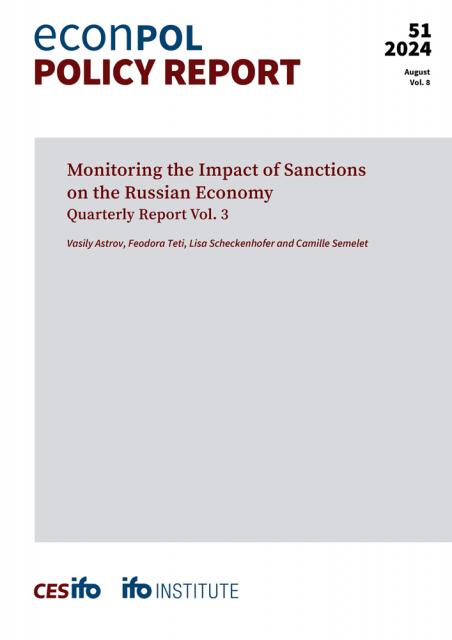Monitoring the Impact of Sanctions on the Russian Economy
This report highlights the effects of international sanctions on Russia's economic performance up to mid-2024. Despite monetary tightening, Russia's early 2024 economic growth remained strong due to a tight labor market and continued credit expansion. The fiscal outlook has improved with more positive short- and medium-term projections despite increased military and social spending. The trade surplus remained almost unchanged, masking declines in both exports and imports. Russian imports surged at the end of 2023 but have recently declined: Increased payment difficulties with third countries, exacerbated by recent U.S. executive orders, have suppressed imports despite strong domestic demand and the ruble's real effective appreciation since late 2023. In terms of trade of high-priority sanctioned products, an analysis of quantities and values traded reveals that Russia has shifted towards lower-quality suppliers from countries like China, Türkiye, and Kazakhstan. The sanctions' effectiveness thus largely depends on substituting high-quality Western goods with lower-quality alternatives. In 2023, Russia secured between 60% and 170% of sanctioned high-priority items compared to 2021 levels.
Astrov, V., F. Teti, L. Scheckenhofer, C. Semelet (2024), "Monitoring the Impact of Sanctions on the Russian Economy, Quarterly Report Vol. 3," EconPol Policy Report 51, ifo Institute, Munich.
